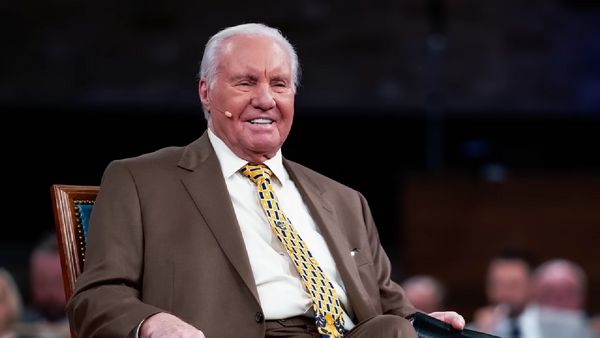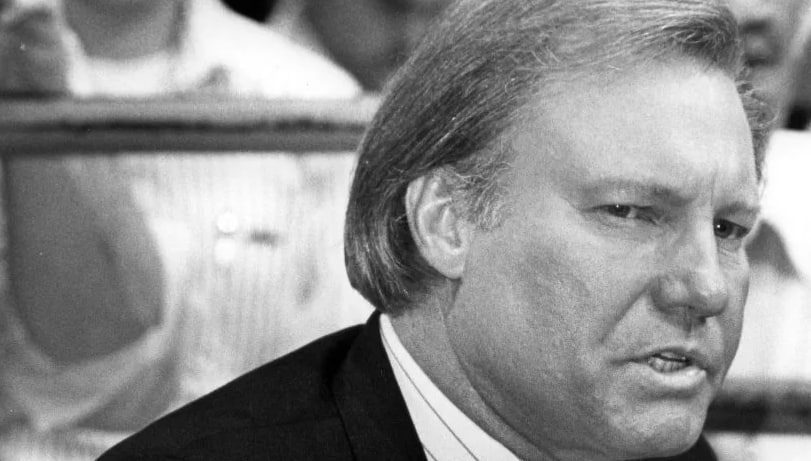Jimmy Swaggart, one of America’s most recognized evangelists and gospel musicians, has died at the age of 90. His family announced he passed away after spending two weeks in a hospital in Louisiana. Swaggart leaves behind a complex legacy of global ministry, bestselling gospel music, and well-documented controversies.
Introduction
Jimmy Lee Swaggart (born March 15, 1935 – died 2025) was an American Pentecostal evangelist, pastor, gospel musician, and television host. He became widely known for his dynamic preaching style and musical talent, particularly through the Jimmy Swaggart Telecast, which rose to prominence in the 1970s and 1980s and reached millions of viewers worldwide.
His passing was confirmed by family members, who stated that he died in Louisiana after being hospitalized for two weeks at the age of 90.
Early Life and Musical Background
Jimmy Swaggart was born in Ferriday, Louisiana, into a musically gifted family. His cousins included Jerry Lee Lewis, the rock and roll pianist, and Mickey Gilley, the country music singer.
Growing up in a Pentecostal household, Swaggart taught himself to play piano by ear and performed regularly in church services. In 1952, he married Frances Anderson, who became his lifelong ministry partner as they traveled throughout the American South preaching the gospel.

Rise to National Prominence
Swaggart was ordained by the Assemblies of God in 1961. In 1971, he launched the Jimmy Swaggart Telecast, combining fiery sermons with gospel music performances. By the 1980s, the show was being broadcast in over 100 countries, translated into multiple languages, and watched by millions.
In addition to his televised ministry, Swaggart produced hundreds of gospel music recordings and authored numerous books on Christian faith and living. His music, characterized by emotional piano playing and heartfelt singing, attracted a devoted following among Pentecostal and evangelical audiences.
Charitable Work and Ministry Expansion
Jimmy Swaggart Ministries (JSM), headquartered in Baton Rouge, Louisiana, became a large organization that included the Family Worship Center church, a Bible college, and an international broadcasting network. His sermons often emphasized salvation, repentance, and Pentecostal theology.
Beyond TV outreach, JSM funded missionary work, distributed Bibles worldwide, and supported evangelical initiatives overseas. The Family Worship Center remains active, with services broadcast on the SonLife Broadcasting Network (SBN).

Public Controversies and Scandals
Swaggart’s career suffered serious setbacks in the late 1980s. In 1988, the Assemblies of God suspended him after he was implicated in a sex scandal. His widely publicized televised apology was notable for its highly emotional delivery.
In 1991, Swaggart was involved in a similar incident. As a result, the Assemblies of God permanently revoked his ministerial credentials. These events significantly damaged his reputation and reduced the reach of his ministry, though he continued to retain a dedicated core audience and supporters.
Ministry in Later Years
Despite these controversies, Swaggart remained active in ministry for decades. He continued to preach weekly at the Family Worship Center, broadcast sermons worldwide, and record new gospel albums. His SonLife Broadcasting Network (SBN) expanded its reach through cable, satellite, and online streaming.
Swaggart also published theological commentaries, study Bibles, and other resources intended for pastors and laypeople. He was regarded as a gifted speaker with a passionate style, remembered for both his dramatic rise in televangelism and the personal challenges that marked his career.

Legacy in Evangelical Broadcasting
Jimmy Swaggart was part of the pioneering generation of televangelists who transformed religious broadcasting into a global phenomenon. Alongside figures like Billy Graham, Oral Roberts, and Pat Robertson, he demonstrated how television could reach massive audiences with religious messages.
Unlike some of his contemporaries who adopted an interdenominational approach, Swaggart remained rooted in Pentecostal tradition. His preaching emphasized Spirit-filled worship, repentance, and personal salvation. His gospel music, marked by powerful piano playing and emotive vocals, continues to influence Pentecostal and Southern gospel traditions.
Reactions to His Passing
Following the announcement of his death, leaders and members of the evangelical community offered condolences and reflections on his contributions to gospel music and Christian media ministry. The Family Worship Center in Baton Rouge shared plans to hold memorial services celebrating his life and work.
His passing marks the end of an era in American religious broadcasting, as his ministry continues under the leadership of family members and longtime associates.

Conclusion
Jimmy Swaggart’s life story illustrates both the enormous growth of American televangelism and the personal and ethical challenges that have shaped it. While controversies overshadowed significant parts of his career, he had a major impact on gospel music, Christian broadcasting, and Pentecostal worship practices.
His family, ministry team, and supporters continue to share his teachings through television and online channels, ensuring that Jimmy Swaggart Ministries remains active in the 21st century. As the evangelical community reflects on his legacy, his complex story raises ongoing conversations about faith, accountability, and the role of media in religious life.
References
-
New York Times Obituary – Official obituary coverage.
-
Associated Press – Reliable news reporting of his death.
-
Britannica – Biographical encyclopedia entry.
-
Christianity Today – Evangelical magazine with historical context.
-
Los Angeles Times – 1988 coverage of scandal.
-
Washington Post – Coverage of church disciplinary actions.

